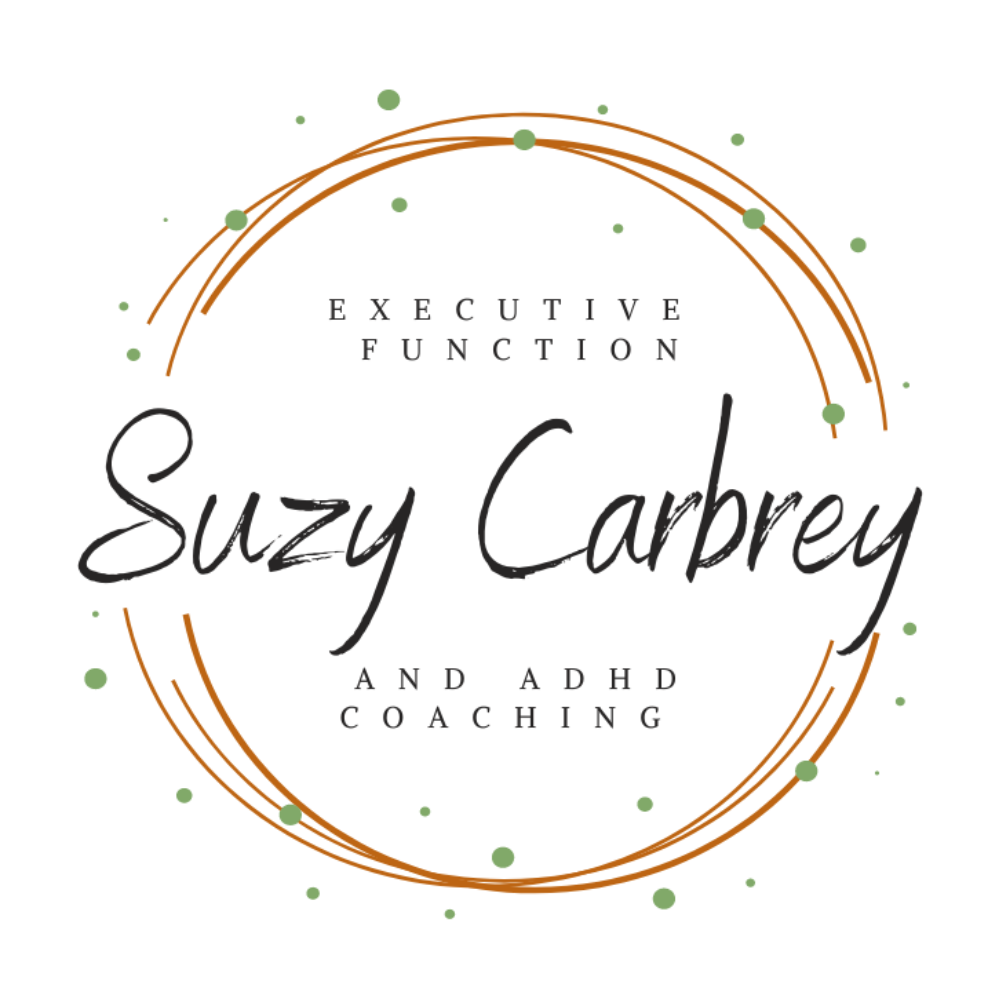Written by Suzy Carbrey ⧫ Living with ADHD poses unique challenges, and nowhere are these challenges more apparent than in the realm of decision-making. Even seemingly simple choices can become a source of frustration and anxiety for individuals with ADHD. In this blog post, we will explore the reasons behind the difficulties associated with decision-making and provide you with an extended array of strategies to boost your confidence and decision-making skills.
Understanding ADHD Paralysis in Decision-Making
 Picture yourself at a crossroads, each path leading to a different destination. For individuals with ADHD, this scenario often feels like navigating a labyrinth of uncertainty, resulting in what is commonly referred to as “ADHD paralysis” in decision-making. This phenomenon stems from the unique way ADHD can influence cognitive processes and emotions, transforming routine choices into complex challenges. The Paralysis Phenomenon: ADHD paralysis in decision-making manifests as feeling stuck, overwhelmed, or unable to choose due to the interplay of ADHD-related traits. This can result in prolonged procrastination, excessive rumination, or even avoidance of decision-making altogether. What might be a routine choice for others becomes a source of immense stress for those with ADHD.
Picture yourself at a crossroads, each path leading to a different destination. For individuals with ADHD, this scenario often feels like navigating a labyrinth of uncertainty, resulting in what is commonly referred to as “ADHD paralysis” in decision-making. This phenomenon stems from the unique way ADHD can influence cognitive processes and emotions, transforming routine choices into complex challenges. The Paralysis Phenomenon: ADHD paralysis in decision-making manifests as feeling stuck, overwhelmed, or unable to choose due to the interplay of ADHD-related traits. This can result in prolonged procrastination, excessive rumination, or even avoidance of decision-making altogether. What might be a routine choice for others becomes a source of immense stress for those with ADHD.
Factors At Play
The decision-making process involves a series of cognitive steps, from gathering information to evaluating options and ultimately making a choice. Several factors contribute to the difficulty individuals with ADHD experience throughout this process:
- Information Overload: The sheer volume of choices and information can overwhelm individuals with ADHD, making it challenging to process and assess options effectively.
- Impulsivity: Impulsive tendencies, characteristic of ADHD, can lead to quick decisions without thoroughly considering potential consequences or choices.
- Distractibility: The allure of distractions can divert attention away from the decision at hand, causing individuals to lose focus and struggle with critical thinking.
- Fear of Mistakes: The fear of making the “wrong” choice can paralyze individuals, preventing them from taking any action at all.
Understanding Decision Fatigue: When Your Brain Needs a Break
Consider your brain as a superhero constantly working hard, akin to a battery that gets drained with use. Similar to how you get tired after a busy day, your brain can also experience fatigue from making too many choices, known as “decision fatigue.”
What is Decision Fatigue?
Think of your brain as a smartphone battery. At the beginning of the day, it’s fully charged and ready to tackle various tasks. However, each decision you make is akin to using an app that drains the battery a little. By day’s end, your mental battery might run low, leading to decision fatigue. It’s as if your brain is saying, “I’ve made enough choices for today; let’s go for the default option,” similar to your phone conserving energy when it’s low.
Why Does Decision Fatigue Happen?
 Your brain, remarkable as it is, is not an endless machine. It gets tired, just like your muscles after playing sports. Every choice you make utilizes a bit of your brain’s energy. So, the more choices you make, the more your brain’s battery runs low. For people with ADHD, decision fatigue can be more intense. With the brain already working extra hard to focus and manage tasks, making choices adds extra strain. This can make decision fatigue hit sooner and harder, leading to simple decisions feeling overwhelming and potentially resulting in procrastination or feeling stuck.
Your brain, remarkable as it is, is not an endless machine. It gets tired, just like your muscles after playing sports. Every choice you make utilizes a bit of your brain’s energy. So, the more choices you make, the more your brain’s battery runs low. For people with ADHD, decision fatigue can be more intense. With the brain already working extra hard to focus and manage tasks, making choices adds extra strain. This can make decision fatigue hit sooner and harder, leading to simple decisions feeling overwhelming and potentially resulting in procrastination or feeling stuck.
Managing Decision Fatigue: Strategies for Renewed Clarity
The good news is there are ways to give your brain a break:
- Plan Ahead: When your brain is fresh, plan some choices in advance, like picking clothes for the week or deciding what to eat for lunch. This saves energy for when decision fatigue strikes.
- Limit Unimportant Choices: Save your brain’s energy for the important stuff. For instance, you can wear your favorite outfit instead of spending time picking from too many clothes.
- Create Routines: Routines act as autopilot for your brain, reducing the number of choices you have to make each day.
- Take Breaks: If you notice you’re feeling tired from making choices, take a break. Give your brain some rest before making more decisions.
Decision fatigue is your brain’s way of signaling that it needs a break. By understanding how it works and using strategies to manage it, you can make better choices and keep your superhero brain ready for action.
Effective Strategies for Decision-Making
Here are practical strategies tailored to help individuals navigate the decision-making process:
- Seek Tranquility: Create a distraction-free environment by finding a quiet space. Sensitivity to stimuli is common in ADHD, and a serene environment can significantly enhance your focus during decision-making.
- Set a Deadline: Counter analysis paralysis by establishing a concrete deadline for your decision. This prevents overthinking and prompts you to take action rather than endlessly mulling over options.
- Streamline Choices: Reduce overwhelm by limiting your options. Narrow down choices based on specific criteria, such as affordability or feasibility. This stepwise approach simplifies the decision-making process.
- Collaborate: Don’t hesitate to ask for assistance. Involve a trusted friend or family member to help you sort through your ideas and provide valuable feedback. Delegating decisions or seeking external input can bring clarity.
- Embrace Achievements: Celebrate even the smallest successes in decision-making. Recognize and reward yourself for making good choices. Positive reinforcement builds confidence and encourages more sound decision-making in the future.
- Gain Clarity on Paper: Putting your thoughts down on paper can bring a sense of clarity that you can’t find by ruminating in your head. This process not only saves you time but also conserves mental energy.
Strategies Tailored to ADHD: Visuals, Accountability, Mindfulness, and Minimizing Overthinking
Incorporating tools like visual aids, external accountability, mindfulness techniques, and methods to minimize overthinking can align with the ADHD way of thinking and enhance your decision-making process.
- Visual Aids: Utilize visual aids such as charts, diagrams, or mind maps to organize information and make the decision-making process more visually accessible. This not only enhances understanding but also caters to the visual thinking often associated with ADHD.
- External Accountability: Engage external sources of accountability, such as a friend, family member, or mentor, to provide support and guidance in decision-making. Discussing options with someone else can offer a fresh perspective and alleviate the burden of making choices alone.
- Mindfulness Techniques: Incorporate mindfulness exercises into your decision-making routine. Mindfulness can help you stay present, reduce anxiety, and enhance your ability to focus. Simple mindfulness techniques, such as deep breathing or grounding exercises, can be beneficial.
- Minimize Overthinking: Develop strategies to minimize overthinking. Set specific time limits for decision-making, and when time is up, commit to a choice. This prevents analysis paralysis and encourages decisive action. Practice redirecting your thoughts when they veer into overthinking territory.
Decision Making Activity: Write Pros & Cons and Assign Point Values
- Define: Begin by clearly defining the problem or challenge you’re facing. This helps you focus your thoughts and decisions on the specific issue at hand.
- Jot it Down: Utilize the power of writing to enhance your working memory. Write down all relevant details and facts related to your decision, reducing the burden of remembering and organizing your thoughts effectively.
- List it Out: Create a pros and cons list for different choices. This visual organization makes decision-making more manageable.
- Assign Point Values: Once you’ve listed the pros and cons, assign point values to each based on how important they are to you. This step adds a quantitative aspect to your decision-making process.
- Count up Points in Each Column: After assigning point values, total the points in each column. This provides a numerical representation of the pros and cons, making it easier to see which side carries more weight.
- Circle the Result with the Most Points: The final step is to circle the result with the most points. This outcome, backed by a systematic process, can guide your decision-making with more clarity and confidence.
Harness the Power of Reversible Decisions
A reassuring notion for individuals with ADHD is that many decisions are flexible and can be changed or adjusted later on. Recognizing this can alleviate the pressure of making a perfect choice and encourage a more adaptable approach to decision-making.
Embracing “Everything is Figure-Out-Able”
Imagine a guiding principle that resonates with your journey: “Everything is figure-out-able.” This perspective fuels the belief that challenges can be overcome step by step, empowering you to tackle even complex decisions.
Conclusion: Empower Your Unique Decision-Making Journey
 Decisions shape our lives, and understanding how ADHD can influence decision-making provides you with a roadmap to navigate challenges more effectively. By combining your awareness of ADHD nuances with practical strategies, you can make choices that align with your goals, values, and aspirations. Remember, your ADHD brain is uniquely wired, and with the right approach, you can master the art of decision-making in your own exceptional way. Decision-making challenges are a shared experience among those with ADHD. With the right strategies and mindset, these obstacles can be overcome. By embracing the concepts of reversible decisions and the belief that everything is figure-out-able, individuals with ADHD can approach choices with confidence and adaptability. While decision-making may pose challenges, it’s a skill that can be honed over time. With persistence and dedication, individuals with ADHD can cultivate effective decision-making
Decisions shape our lives, and understanding how ADHD can influence decision-making provides you with a roadmap to navigate challenges more effectively. By combining your awareness of ADHD nuances with practical strategies, you can make choices that align with your goals, values, and aspirations. Remember, your ADHD brain is uniquely wired, and with the right approach, you can master the art of decision-making in your own exceptional way. Decision-making challenges are a shared experience among those with ADHD. With the right strategies and mindset, these obstacles can be overcome. By embracing the concepts of reversible decisions and the belief that everything is figure-out-able, individuals with ADHD can approach choices with confidence and adaptability. While decision-making may pose challenges, it’s a skill that can be honed over time. With persistence and dedication, individuals with ADHD can cultivate effective decision-making
Begin Online Coaching for Executive Functioning / ADHD
Ready to gain control and enhance your executive functioning? As an experienced and compassionate coach, I specialize in providing support for executive functioning and ADHD. To embark on your journey, please reach out to me at 708-264-2899 or email hello@suzycarbrey.com to schedule a FREE 20-minute discovery call consultation. With a background as a speech-language pathologist, I have a strong foundation in executive functioning coaching. My graduate degree program in SLP placed a significant emphasis on cognition, including executive functions, and I have years of experience in medical rehabilitation, providing cognitive-communication therapy. Additionally, I have completed an ADHD Services Provider certification program, I am Solutions-Focused Brief Therapy Diamond Level 1 certified and I am trained in the Seeing My Time® executive functioning curriculum. Experience the convenience and effectiveness of online coaching, backed by studies that demonstrate equal results to in-person services. Parents, professionals, and emerging adults love the convenience and privacy of receiving coaching from their own homes.
Whether you reside in Chicago, Milwaukee, Indianapolis, Kansas City, or anywhere else around the globe, I am here to assist you. Schedule your discovery call consultation today, and I eagerly anticipate the opportunity to work with you!
Please note that although I am a certified speech-language pathologist, all services Suzy Carbrey LLC provides are strictly coaching and do not involve clinical evaluation or treatment services. If you require a formal speech therapy evaluation and treatment, please inform me, and I can provide appropriate recommendations.

